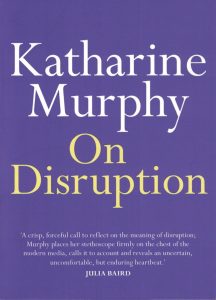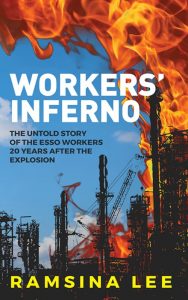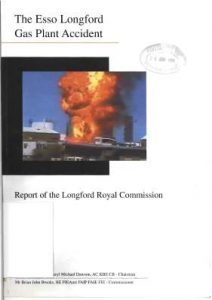 All Australian businesses are experiencing disruption. Some are embracing this as Change, but not enough. As occupational health and safety (OHS) is an unavoidable part of running a business, it is being similarly disrupted. So what can one do? I chose to read a short book called “On Disruption”. I purchased it because of the title and I had recently shared the media room at the ALP National Conference with the author, Katherine Murphy. That the book wasn’t about OHS but about the disruption experienced by journalism, newspaper publishing and mainstream media, didn’t bother me as, being a blogger, it should still be of interest either way.
All Australian businesses are experiencing disruption. Some are embracing this as Change, but not enough. As occupational health and safety (OHS) is an unavoidable part of running a business, it is being similarly disrupted. So what can one do? I chose to read a short book called “On Disruption”. I purchased it because of the title and I had recently shared the media room at the ALP National Conference with the author, Katherine Murphy. That the book wasn’t about OHS but about the disruption experienced by journalism, newspaper publishing and mainstream media, didn’t bother me as, being a blogger, it should still be of interest either way.
And it was. But what was surprising were the parallels between journalism and OHS. I shouldn’t have been surprised as both are, or claim to be, professions.

 It is difficult to make a book about occupational health and safety (OHS) law interesting. Some try with creative design but the most successful is when laws are interpreted into real world circumstances. Thankfully
It is difficult to make a book about occupational health and safety (OHS) law interesting. Some try with creative design but the most successful is when laws are interpreted into real world circumstances. Thankfully 
 Many have been claiming that the era of neoliberal economics and the associated politics is over or, at least, coughing up blood. However, occupational health and safety (OHS) is rarely discussed in terms of the neoliberal impacts, and vice versa, yet many of the business frustrations with red tape, regulatory enforcement strategies, reporting mechanisms and requirements and others have changed how OHS has been managed and interpreted.
Many have been claiming that the era of neoliberal economics and the associated politics is over or, at least, coughing up blood. However, occupational health and safety (OHS) is rarely discussed in terms of the neoliberal impacts, and vice versa, yet many of the business frustrations with red tape, regulatory enforcement strategies, reporting mechanisms and requirements and others have changed how OHS has been managed and interpreted.